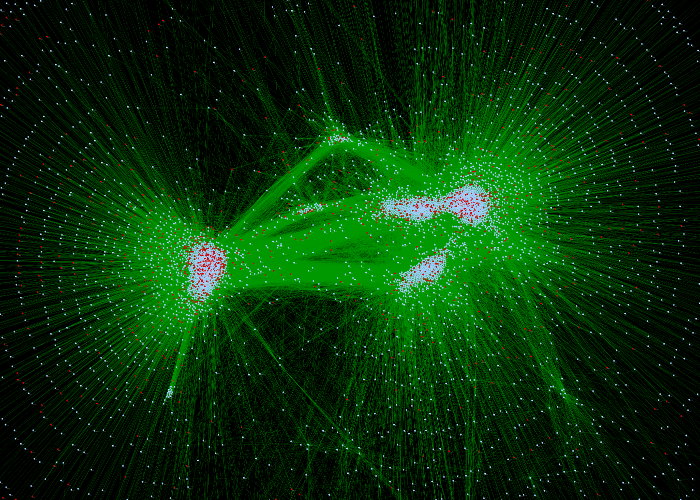Yesterday I spent several hours attending an ethics class as well as a ethics/policy seminary. Both were great, and while I haven't had a large amount of time to process the information myself, I thought it might be useful to reflect on it here and share what I learned. The sessions were on some of the issues and implications of high throughput sequencing and genomic data. While the lecture was interesting, it's the class discussion I've been thinking about most .
In class we talked about the trade off between privacy and information when dealing with personal genomic data. A few different subjects were covered. The difference in opt-in verses opt-out consent forms and what it means to given "informed" consent was brought up. People in the class thought that it's difficult for a layman to give truly informed consent, simply because the subject matter and background material are too deep to allow an understanding of the implications of genetic data in a few paragraphs. It's analogous to the Terms and Conditions we all blindly accept for using our favorite software and websites. People were also attempting to find the optimum phrasing to ensure that maximum utility of the genomic information could be realized without the phrasing of the consent form becoming vague and open enough that it worried potential subjects. Several people were concerned about data later being abused by researchers as it was in Arizona.
Also discussed was de-identifying verses anonymizing data. De-identified data has had the identifications are removed and cryptographically secured, but can be later re-identified by the holder of the encryption keys if necessary. Anonymous data, theoretically, has had the connection between the genome and the person has been completely removed. Most of the time was spent answering questions like, "Is it ethical to re-identify data without explicitly informing the subjects?" or "Who should be given the encryption keys?"
Overall, I felt like the discussion contained a diversity of opinions and was rather thought provoking. There was one topic, however, that seemed overlooked to me...
Personally, I'll admit that the issue of privacy has never been a huge concern of mine, but as we have seen recently, ANY digital data is vulnerable to intrusion. It doesn't matter if it's credit card, personal photo, classified, or genomic data. If it's out there, there is the possibility of it being leaked and/or abused. It doesn't even have to be illegal. What are the laws surrounding what the government is able to do with genomic data, and to what extent do organizations like the NSA feel they have to obey those laws? Is the government allowed to re-identify genomic data as evidence against a potential criminal? Say that DNA was found at a crime scene, and it doesn't match to any public database. The police have a suspect in mind, but not enough evidence for an arrest (after the arrest, they can require DNA swabs). Can they use re-identified data as cause for arrest? Other potential scenarios in which this question matters are distinctly dystopian. And while they may seem sci-fi, programs like PRISM make these topics worth discussing.
At the end of class my professor asked us if we would/will have our genome sequenced. We unanimously said yes. Because the benefits outweigh the risks, right? But then again, the poll was obviously both biased and homogeneous.
Would you read your blueprints, even if it meant that others potentially could as well?

I think its real dangerous what the wrong people could do with information regarding a persons genomic blueprint. I think that legally you would definitely want to have some system in place to allow a person to encrypt their data about themselves. The kinds of things our DNA can tell us about the person we are, are so valuable that I think they should be considered like a personal asset, something of great value, that should be kept locked away for safe keeping, like money in a bank. The sheer amount of profiling and discrimination that could happen based on a persons genome info would be insane.
ReplyDeleteThere seems to me a good possibility that if the average person could afford ably read/buy their own genetic information that people would do it no matter what - if it could somehow help them live longer/reduce medical costs in the long run for example. Just like with many of the websites and apps people use today as you mentioned, no one cares to read a ToS. They just want to get on Facebook. And now people are finally starting to wake up to it and realize they gave away some of their most important assets to companies.
I really hope the same thing doesn't happen when it comes to reading peoples genes, as I believe it will cause even more problems/financial loss for the victims of stolen info. I hope that you remain focused on the ethics of your work. Science doesn't see things as right or wrong, only as progress. so its great that you are having seminars on ethics because the decisions made by scientists affect people in society, always good to consider how your research will alter others lives in such ways.
I’m really amazed with your posting skills as well as with the layout on your blog site. Very informative and well written post! Quite interesting and nice topic chosen for the post Nice Post keep it up.Excellent post.
ReplyDeletedatabase bioinformatics